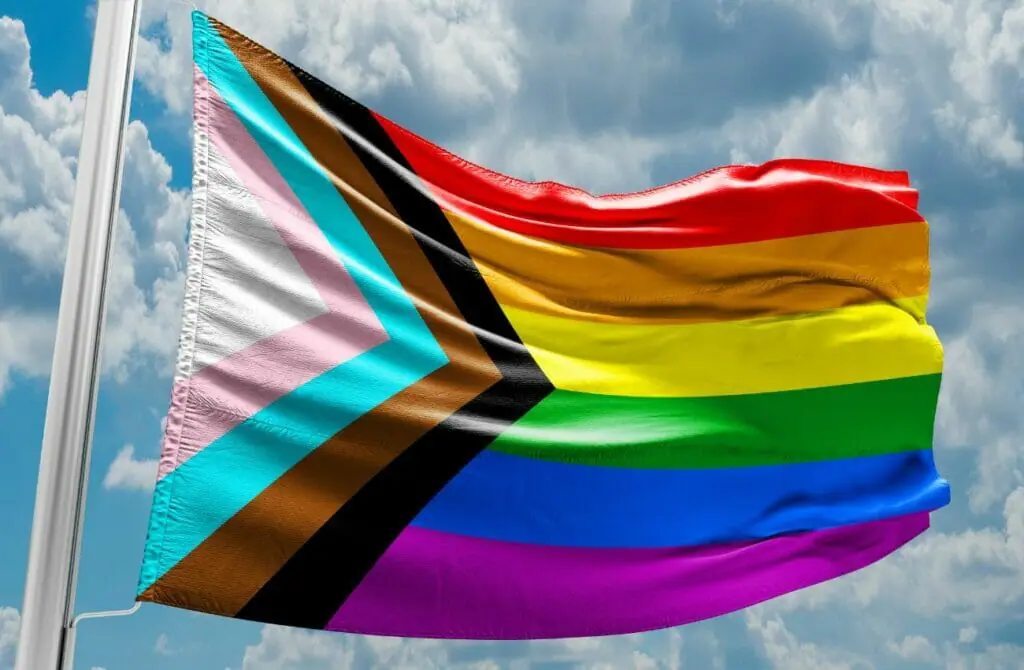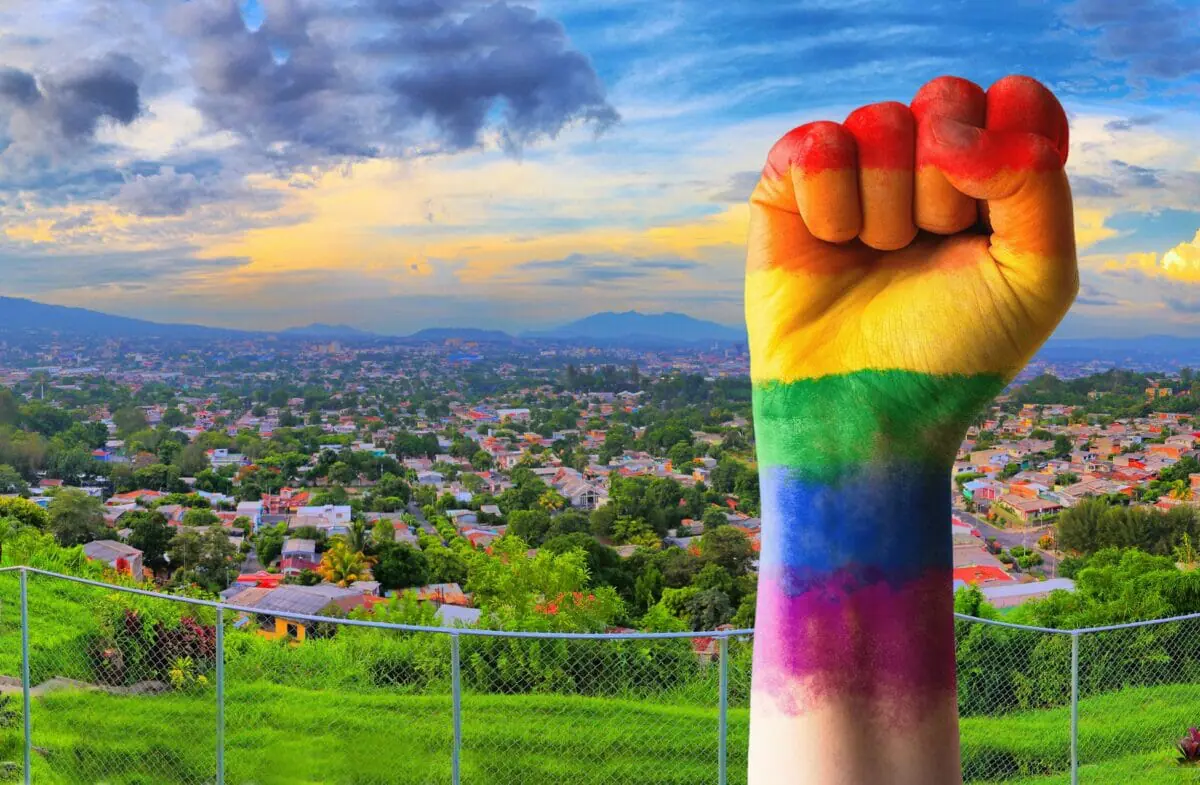LGBT rights in El Salvador have been a contentious issue due to the nation’s conservative cultural perceptions. El Salvador is often considered one of the most socially homophobic countries in Latin America, making it a difficult environment for both local residents and international visitors who identify as LGBT.
While homosexuality is legal in the country, same-sex marriage and civil unions are not recognized, and there are limited protections against discrimination based on sexual orientation or gender identity.
For tourists, it is crucial to remember that while the local culture may not be as accepting as other countries, there are still measures that can be taken to ensure a safe and enjoyable experience. Staying abreast of local news, researching the current state of LGBT rights, and being aware of any political developments are essential before visiting.
It’s also important to keep a low profile and remain vigilant, as the situation in any country can change, and bad actors can exist everywhere. Connect with LGBT advocacy organizations and seek their advice on safe spaces and resources in the country.
However, it is also essential to recognize that information about the political and cultural landscape of El Salvador can become outdated quickly. As such, travelers should seek the most current advice and guidance before embarking on their journey. Being well-informed and cautious can significantly reduce risks and contribute to a more inclusive and respectful environment for all.
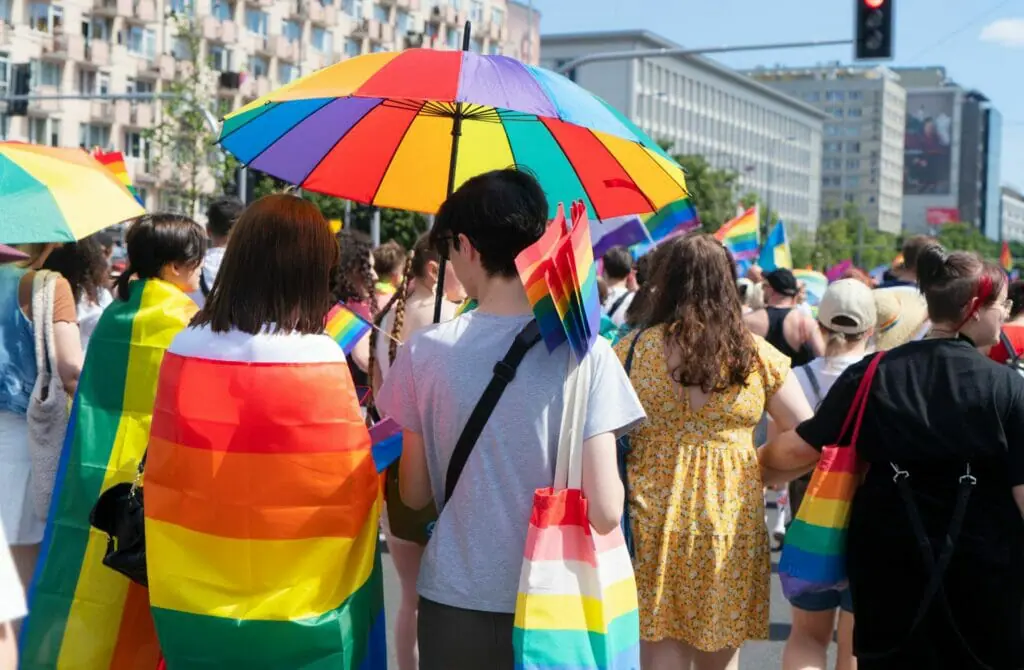
History Of LGBT Rights In El Salvador
In El Salvador, the LGBT community has faced significant challenges and struggles; however, progress has been made in recent years to improve their rights and acceptance. In 2022, the Constitutional Chamber of the Supreme Court of Justice issued a reform on the Gender Identity Law, allowing individuals to change their name to match their gender identity. Furthermore, El Salvador joined the UN LGBTI Core Group, increased sentences for bias-motivated crimes, and established a Sexual Diversity Directorate, indicating its commitment to championing LGBT rights.
While these advancements mark progress for local LGBT individuals, it is essential to acknowledge the differences experienced by tourists, who may not face the same level of discrimination and violence. Nevertheless, LGBT tourists should remain vigilant and cautious during their travels, as bad actors exist in every country.
To protect yourself while traveling, it is crucial to research current, local information on LGBT rights and community resources before embarking on your trip, as situations can change rapidly. Additionally, maintaining a low profile, avoiding excessive public displays of affection, and staying in well-populated areas can help reduce the likelihood of unwanted attention or victimization.
Remember to stay informed, cautious, and connected with local LGBT organizations during your travels. While significant progress has been made, the fast-changing nature of legal and societal attitudes may warrant updated safety measures. Always seek up-to-date advice before traveling and remain vigilant in protecting your rights as a tourist.
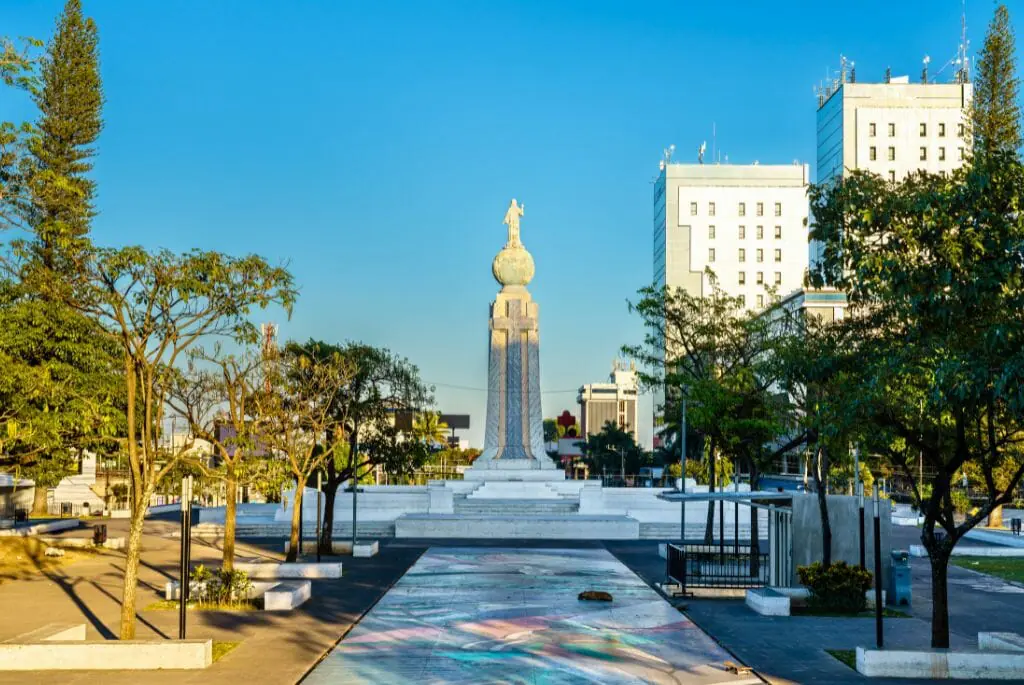

The LGBT Current Situation In El Salvador
In El Salvador, LGBT rights have experienced significant legal advancements in recent years. In 2022, the Constitutional Chamber of the Supreme Court of Justice reformed the Gender Identity Law, allowing individuals to change their names to match their gender identity. However, the country continues to struggle with social acceptance and protection of LGBT individuals, particularly the transgender community.
For local people, the Salvadoran government has acknowledged that LGBT individuals face “torture, inhuman or degrading treatment, excessive use of force, illegal and arbitrary detention, and discrimination,” according to a Human Rights Watch report. Gang violence has also been an ongoing issue, negatively affecting the lives of many individuals, including those within the LGBT community.
For tourists, the situation may be different, but not entirely free from discrimination and potential harm. Although many tourist areas are comparatively safer than other regions of the country, it’s crucial for LGBT travelers to be aware of both the local cultural norms and potential safety risks.
To protect yourself while traveling in El Salvador, consider the following steps:
- Stay updated on the latest news, safety advisories, and travel warnings from reliable sources.
- Remain vigilant and cautious in unfamiliar environments, taking care to avoid displaying open affection or engaging in behaviors that might draw unwanted attention.
- Choose your accommodations and travel activities wisely, using caution when seeking out LGBT-friendly establishments.
- Connect with local LGBT organizations, who can provide guidance and support when necessary.
Despite the challenges faced by the LGBT community in El Salvador, it’s important to remember that the situation can change rapidly. It is imperative to seek up-to-date information and advice before traveling and to always remain vigilant in any environment.
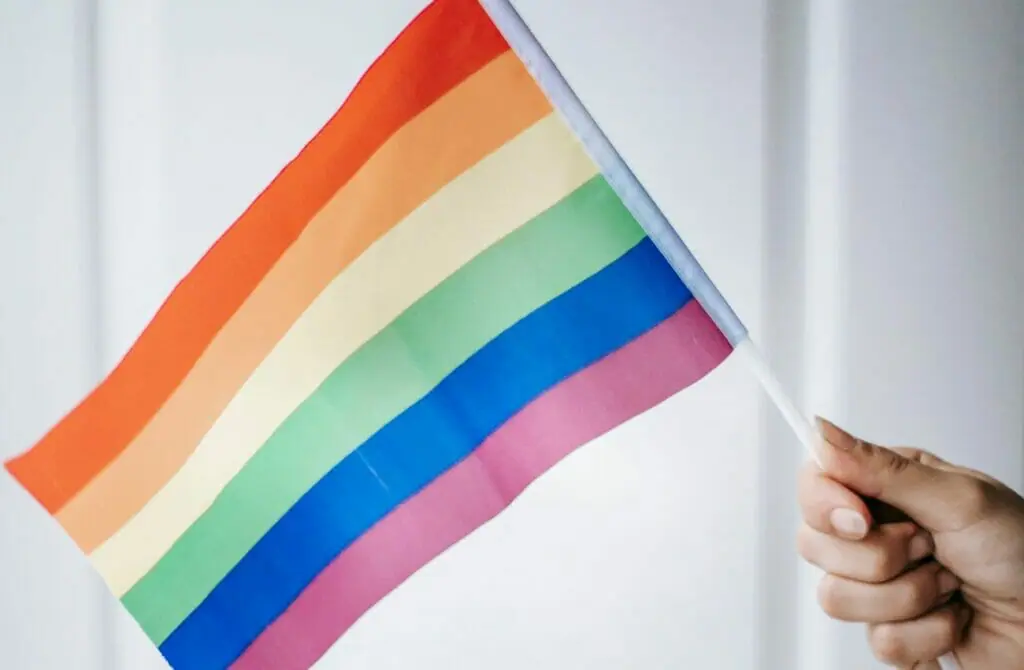

The Future For The Queer Community In El Salvador
Although El Salvador has made some strides in recognizing LGBT rights, the country still faces significant challenges in ensuring the safety and well-being of its LGBT population. For local people, the risks are often higher due to pervasive discrimination, social and economic marginalization, and a lack of legal protections.
Tourists, on the other hand, may not face the same level of exposure to these challenges; however, they should still be cautious and vigilant, as violence and discrimination can affect anyone, regardless of nationality. It’s essential for visitors to educate themselves about the local cultural and legal context and to respect local customs and norms. This includes avoiding overt displays of affection and being discreet about one’s sexual orientation or gender identity, if necessary.
There are several steps that can be taken to protect oneself while traveling in El Salvador. One is to remain current on local news and events, as situations can change rapidly, and information may become outdated. Travelers should also seek advice from reliable sources, such as government travel advisories and local LGBT organizations, before embarking on their journey. During their stay, travelers should maintain strong connections with their home country’s embassy or consulate, as well as with friends and family.
It’s crucial to remember that bad actors can be found in any country, and remaining vigilant is a key part of ensuring one’s safety. By taking precautions, staying informed, and exercising an appropriate degree of caution, visitors can better navigate the complexities of LGBT rights in El Salvador while enjoying the rich cultural experiences the country has to offer.
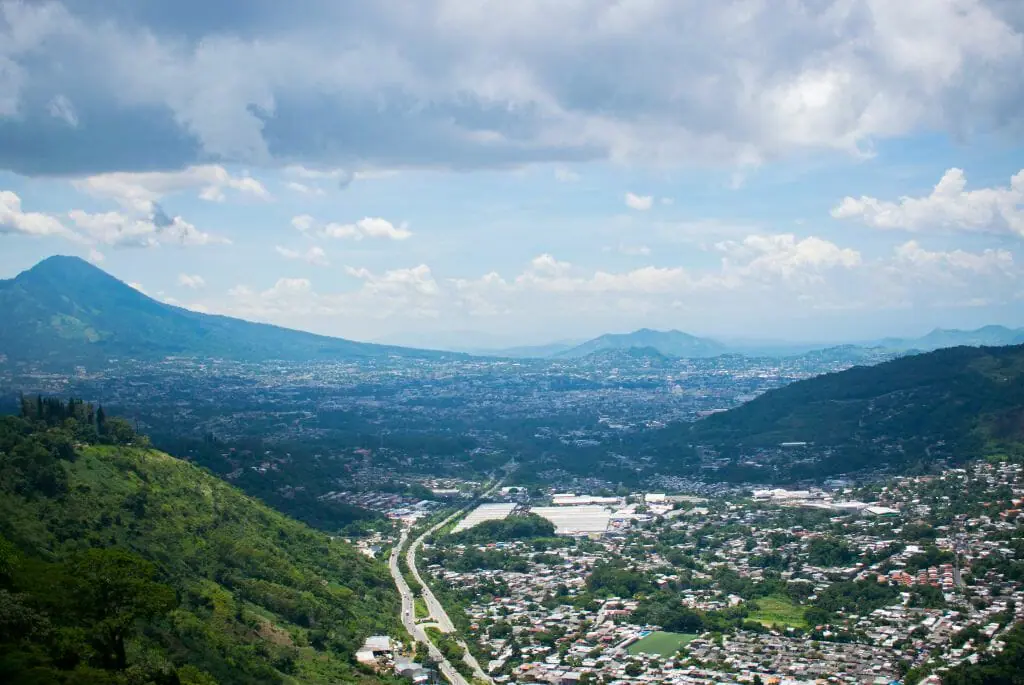
Protect Yourself While Travelling In Gay El Salvador
LGBT rights in El Salvador have shown some progress, such as the 2022 reform of the Gender Identity Law that allows individuals to change their names to match their gender identity. However, the situation for both local LGBT people and tourists remains precarious.
While tourists may be perceived as having some level of protection, local LGBT Salvadorans face significant challenges, including discrimination, violence, and lack of government protection. It is essential for both locals and tourists to remain vigilant and adopt strategies to ensure their safety.
Firstly, avoid drawing attention to your sexual orientation or gender identity, especially in unfamiliar or potentially hostile environments. This may help minimize potential threats and reduce the likelihood of being targeted by hostile individuals.
Secondly, should you encounter legal issues, seek help from reliable local organizations that advocate for LGBT rights, such as COMCAVIS TRANS. They have extensive knowledge of the local context and can provide valuable advice on how to navigate various situations.
It’s crucial to stay informed about the local context, as the situation for LGBT individuals in El Salvador can change quickly. Before traveling or engaging in any activities, obtain up-to-date information on the current climate and any potential risks. Safeguard your well-being by maintaining a network of supportive contacts, including local friends, organizations, and fellow travelers.
Remember that although there are always bad actors in every country, many people and organizations are committed to promoting and defending LGBT rights. Balancing caution with optimism, staying informed, and forming connections with like-minded individuals will enable a safer and more enjoyable experience, whether living or visiting El Salvador.
Please note that situations can change fast, and information can be outdated. Always seek current advice before traveling or making decisions based on the information provided.
